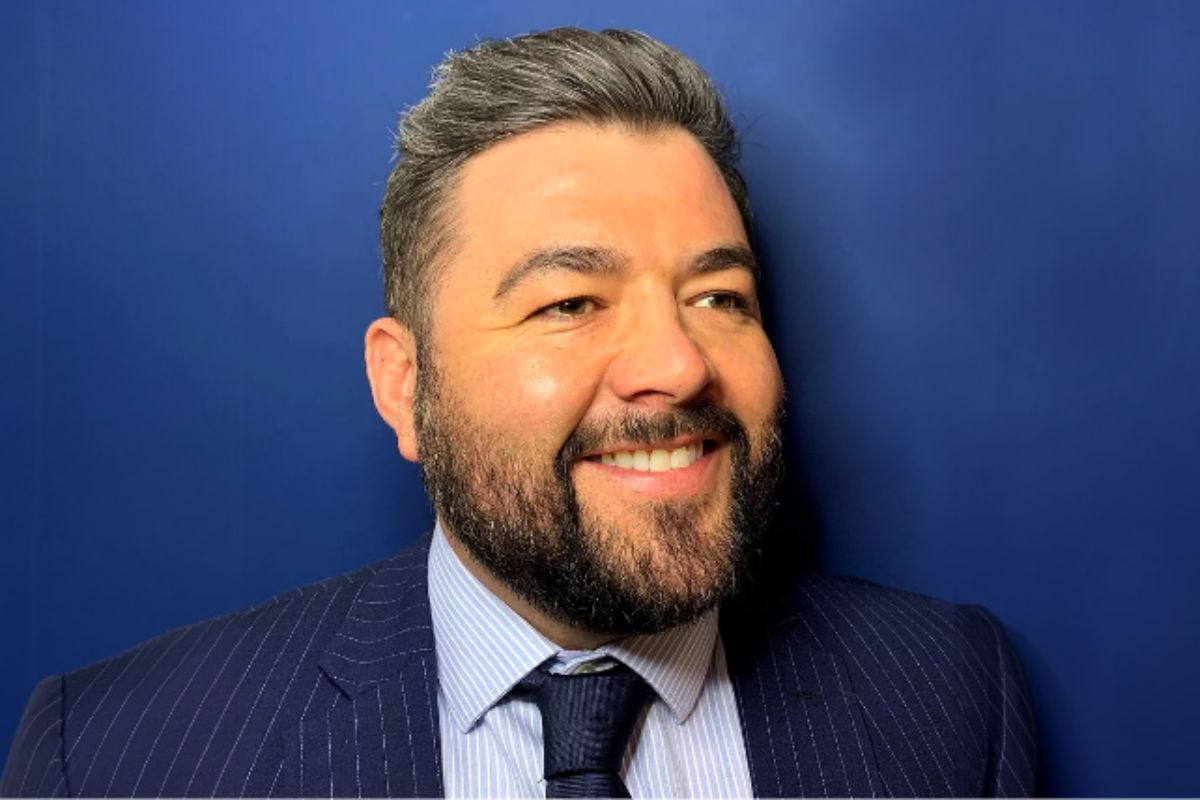By Robert Anderson – Project Leadership Specialist and founder of Leadership Launchpad, a CPD-accredited course approved by the Institute of Leadership.
Feeling Stretched? Structure Might Be the Answer
Running a business can often feel like spinning multiple plates at once. Founders juggle many roles, make dozens of decisions each day, and rarely get a chance to step back and reflect. When you’re constantly in motion, clarity is usually the first casualty. And without clarity, it’s easy to start feeling overwhelmed.
This isn’t just about being busy, it’s about being effective. Too often, we mistake activity for progress. We get caught in the weeds, react to whoever’s shouting the loudest, and avoid the uncomfortable strategic decisions that only we, as founders, can make.
That’s where the project mindset comes in, not as an unnecessary structure, but as a powerful lens that helps you take control.

Think Like a Project Leader, Not Just a Business Owner
Project management might sound corporate, but at its heart, it’s about making progress with purpose. It’s a discipline of breaking big goals into manageable steps, focusing attention, and aligning others behind a shared vision.
For entrepreneurs, this kind of discipline is gold. It stops you from living in reactive mode and helps you build something sustainable, not just successful for now. You’re no longer just working in your business; you’re leading it forward with intent.
The Secret Weapon? Scope
If there’s one project principle I’d recommend every founder adopt, it’s scope. Not a 20-page Gantt chart. Just scope. At its simplest, it’s the ability to say clearly: “This is what we’re doing, and this is what we’re not doing.”
Defining scope brings clarity in four major ways. It sharpens your focus so you’re not constantly distracted by the next shiny idea. It reduces overwhelm by making even complex goals feel manageable. It improves communication, whether with investors, your team, or just yourself. And it gives you something rare in the startup world: a way to measure if you’re winning.
Scope clarity is where a lot of businesses slip, not from lack of ambition, but because of constant additions and shifting goals. Getting this right changes everything.
The One-Page Clarity Tool You Didn’t Know You Needed
In traditional project delivery, there’s a tool called a Project Initiation Document (PID). It sounds formal, but think of it as a one-pager that cuts through the noise and answers five simple questions:
- What are we trying to achieve?
- Why does it matter right now?
- What’s included, and what’s not?
- What resources do we have?
- How will we know it’s working?
You don’t need fancy software. This could be a scribble on a whiteboard, a few bullet points in Notion, or a draft in your notes app. What matters is that you get it out of your head and onto paper. When you do, your business shifts from being a fog to something you can lead with focus.

Why It Works: Backed by Research
According to the Project Management Institute (PMI), structured project approaches dramatically improve outcomes by aligning efforts with strategic priorities, increasing efficiency, and reducing wasted time and resources. Businesses that adopt project discipline are better at managing risk, avoiding burnout, and delivering consistent results – qualities every founder could use more of.
What’s more, a 2023 study from PMI found that organisations that prioritised project leadership skills – such as communication, adaptability, and ownership – were significantly more likely to complete projects on time and within scope. These aren’t just corporate buzzwords; they’re entrepreneurial edge.
Five Small Shifts That Make a Big Impact
Even without a background in project delivery, entrepreneurs can start building this kind of clarity into their work:
- Break the big vision into milestones. Map out what “done” looks like for each stage of growth.
- Keep a decision log. You’ll stop revisiting old debates and move faster.
- Be ruthless with scope. If it’s not part of your strategy, don’t let it creep in.
- Check in regularly with key players. That includes co-founders, core team members, and advisors.
- Build in reflection time. Even 30 minutes a fortnight to assess what’s working can spark serious gains.
These aren’t bureaucratic steps. They’re clarity tools. And the sooner you adopt them, the faster you build momentum that sticks.
Final Thought: Project Skills Are Founders’ Skills
At the end of the day, project management isn’t just about managing work, it’s about leading with intent. That’s what entrepreneurs do every day, often without realising it.
So if you’re the kind of founder who thrives on action but sometimes feels the wheels are spinning, borrow a few tools from the project world. You don’t need to be certified. You just need the discipline to stop reacting and start deciding.
Your future self, and your business, will thank you for it.
About the expert
Robert Anderson is a Project Leadership Specialist, delivery advisor, and course creator whose work is rooted in lived experience, resilience, and a drive to empower those often overlooked by traditional systems.

Sport played a major role in shaping his approach. A former Academy-level rugby player, Robert found purpose in coaching early on. This passion for guiding others carried through into his professional life, leading to key roles on major programmes including the Olympic Legacy Project. There, he adopted a servant leadership model to help teams rebuild trust, take ownership, and deliver results.
Combining project delivery credentials (including PRINCE2) with personal insight, Robert launched Leadership Launchpad – a CPD-accredited course approved by the Institute of Leadership. Designed for professionals who perform the work of project leaders without the title or recognition, the programme focuses on practical tools, real-world strategies, and building confidence, helping participants step up and lead in their own way.
Robert believes leadership is less about following a formula and more about leading with intention, cutting through complexity, focusing energy, and delivering lasting impact.


